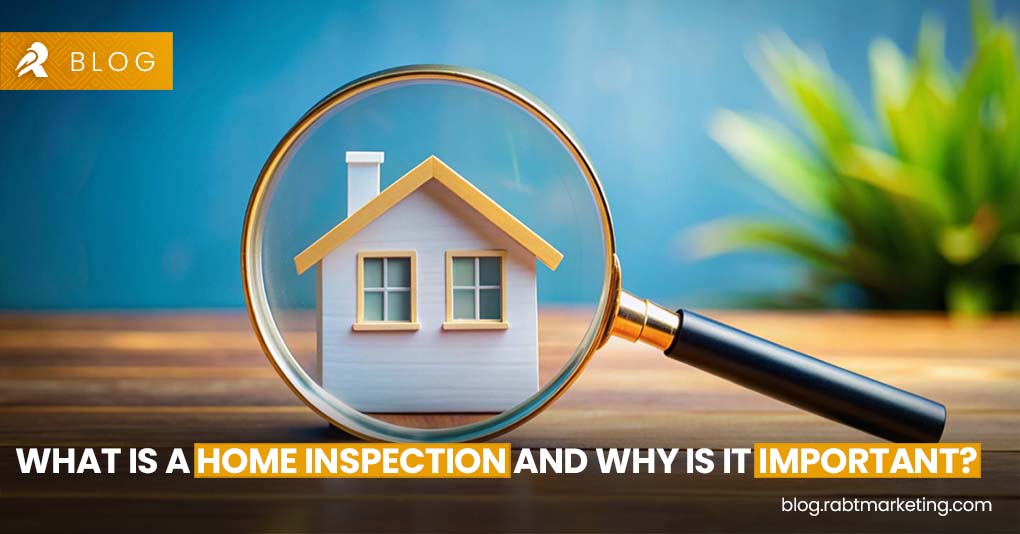Buying or selling a home is a big financial decision in, and hidden problems can turn your dream home into a costly burden. A home inspection is key to avoiding these issues. It can reveal things like a leaking roof, old electrical systems, or cracks in the foundation that may lead to expensive repairs. A certified home inspection helps buyers, sellers, and investors spot safety and value concerns, so they can make smart choices.
Here’s why a home inspection is important for making informed decisions and giving you peace of mind in real estate.
What is a Home Inspection?
A home inspection is a proper examination of a property’s condition, usually done by a certified inspector. It checks the house’s structure and systems to spot any problems or areas needing repair. This inspection is very important for buyers, sellers, and even homeowners, as it provides detailed information about the property’s state before making important decisions.
Important Parts of a Home Inspection
A home inspection evaluates the condition of a property, providing a clear understanding of its current state. Here’s what it typically includes:
- Exterior Inspection
Inspectors examine the home’s outside, looking at the roof, walls, foundation, drainage, and outdoor structures like decks. They search for any wear and tear that could affect the home’s safety or value. - Interior Inspection
The inside of the house is thoroughly checked, including walls, ceilings, floors, windows, and doors. Inspectors also look for structural problems or water damage that may not be visible right away. - Structural Components
Inspectors review the foundation, basement, and framing of the home to ensure the property is strong and safe. - Electrical System
The electrical system, including wiring, outlets, panels, and fixtures, is inspected to make sure it meets safety standards and is working properly. - Plumbing System
Inspectors look for any leaks, low water pressure, or other plumbing problems. They check pipes, fixtures, water heaters, and drainage systems to ensure everything is working as it should. - Heating and Cooling Systems (HVAC)
Heating, ventilation, and air conditioning systems (HVAC) are inspected to ensure they are energy-efficient and provide comfortable indoor temperatures. - Roofing
The roof inspection focuses on the condition of roofing materials, checking for wear, damage, or leaks that could lead to future problems. - Attic and Insulation
Inspectors check the attic for proper insulation and ventilation, which help keep energy costs low and maintain consistent indoor temperatures. - Appliances
Any built-in appliances, like ovens or dishwashers, are tested to make sure they are functioning correctly.
Why a Home Inspection Matters
A home inspection provides valuable insights for both buyers and sellers:
- Finding Hidden Problems
A home inspection can uncover issues like structural defects, electrical problems, or plumbing issues that may not be obvious. These can be expensive to fix, so it’s important to know about them early. - Negotiation Power
If the inspection reveals significant issues, buyers can use the findings to negotiate repairs or a lower price with the seller. - Future Maintenance Planning
The inspection report helps buyers plan for future repairs or maintenance, allowing them to budget and prioritize projects after buying the home. - Informed Decision-Making
Knowing the true condition of a property helps buyers decide if it meets their needs and if they’re ready for any additional costs. It also gives sellers a chance to fix problems before listing, making the sale smoother. - Protecting Your Investment
For sellers, an inspection can increase the home’s appeal by fixing issues upfront. For buyers, it helps ensure they are making a sound investment, reducing the risk of unexpected expenses.
Meeting Insurance Requirements
Sometimes, home insurance providers require a home inspection before issuing a policy to ensure the property is safe. This report can help speed up insurance applications and even lower premiums by addressing issues that affect coverage.
Conclusion
A home inspection is a vital step when buying or selling a property. It helps uncover hidden problems, provides valuable information for decision-making, and protects your investment. For both options, if you’re buying or selling, a thorough home inspection ensures peace of mind and a smoother real estate transaction.
Read More:- Top 10 Useful Tips For Renovation of Old House
FAQs
- Who pays for the home inspection?
The buyer typically covers the cost of the home inspection, though this can be negotiated depending on the situation. - How long does a home inspection take?
It usually takes 2 to 4 hours, depending on the size and condition of the home. - Can I be present during the inspection?
Yes, it’s recommended for buyers to attend the inspection so they can learn more about the property’s condition and ask questions directly to the inspector.

